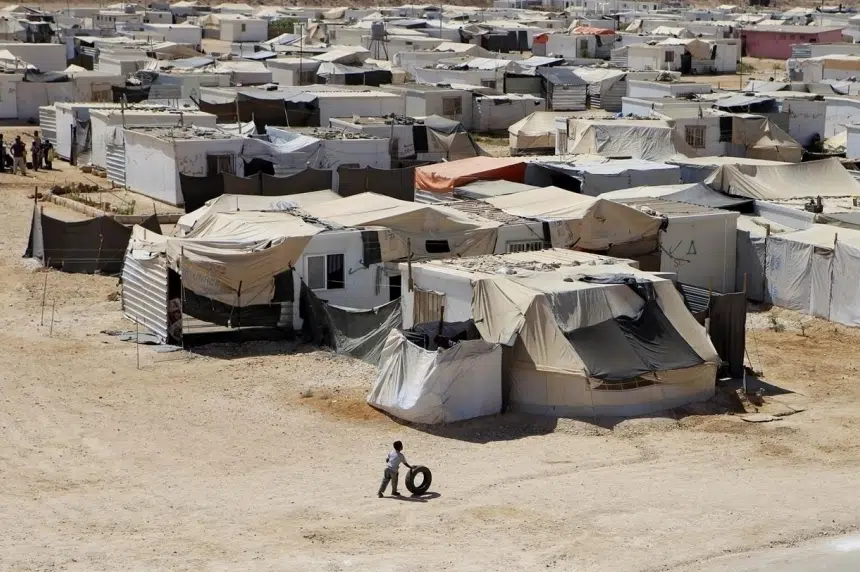If Prime Minister Justin Trudeau succeeds in bringing 25,000 government-sponsored Syrian refugees to Canada by the end of the year, Saskatchewan could see around 2,000 of them.
“(Historically), Saskatchewan receives about 7.7 per cent of the total government-sponsored refugees that come to Canada,” explained Beulah Gana, director of the Saskatchewan Association of Immigrant Settlement and Integration Agencies (SAISIA). “We don’t know if that same percentage will be applied, but assuming that percentage is applied to this 25,000 — we may be seeing like around 2,000 but that’s just speculation on my part.”
Ahead of the prime minister executing his plan, she’s linking arms with other immigration and refugee settlement agencies to see how they can prepare for the influx of refugees.
“We don’t know how much pressure it will put on the system, that’s why we’re trying to go by this provincial stats planning and we’re reaching out to the health region and the schools and we’re working towards getting a coordinated plan in place,” she said.
SAISIA is working with the Open Door Societies in Saskatoon and Regina, as well as the Prince Albert YWCA, the Moose Jaw Multicultural Centre and the Global Gathering Place in Saskatoon. Each organization will be looking at their strengths, weaknesses and limitations.
Gana is also working to launch a one-stop web portal where individuals can find more information about government-sponsored refugees, ways to volunteer and donate to their settlement in Saskatchewan.
“The portal has information if you want to learn about what is happening in the world refugee crisis, Canada’s commitment and categories of refugees,” she said. “We also want a place where people can learn about volunteer and donation opportunities.”
Saskatchewan welcomes about 600 government-sponsored refugees annually. They are split, not evenly, between Prince Albert, Saskatoon, Moose Jaw and Regina.
While the thought of adding 2,000 to that may seem challenging, Gana said they simply can’t say no.
“We cannot sit down and say we cannot handle it. We know there are people in crisis who need assistance and the weather is getting cold in Syria right now and how are all those children going to survive in the open cold?” Gana said.
Settlement agencies are crucial resources for refugees. They act as the first point of contact at the airport then help with looking after temporary housing, helping refugees find permanent housing, getting their kids in schools, acquiring health cards and social insurance numbers as well as looking after doctor appointments if they are sick or need medical attention.
Gana said she’s meeting with provincial settlement agencies this week to start planning.
Provincial Government willing to step up
The government of Saskatchewan says it is open to take in more refugees this year, providing the support is there from Ottawa.
In an interview on Gormley on Thursday, Saskatchewan Immigration Minister Jeremy Harrison said the province has already committed to sponsoring 600 refugees in 2015. He said increasing the number can’t happen without additional housing, health and education resources.
“Our infrastructure in terms of resettlement is really, really stretched right now,” he said, adding the cost to settle a single person is between $35,000 and $40,000 per year.
Harrison relayed the province’s concerns to federal immigration minister John McCallum during a phone conversation on Tuesday.
“I indicated to minister McCallum is we need to get the security aspect right,” said Harrison.
“That means making sure … that these are folks who are actual refugees who are in need of our protection.”
The 25,000 refugees the federal government wants to bring to Canada by year’s end would be government sponsored. Ottawa would pick up the first year of the tab, with the cost transferring to the provinces in year two.
“I spoke to Mayor Atchison and Mayor Fougere. They both have concerns as well just that we have the infrastructure in place to support these additional newcomers.”
Harrison said the six week timeline set out by Ottawa is “probably an unrealistic goal,” adding they would support a decision should Ottawa decide to extend it.
Harrison said there was no request by McCallum for the province to accept a specific number of refugees.







